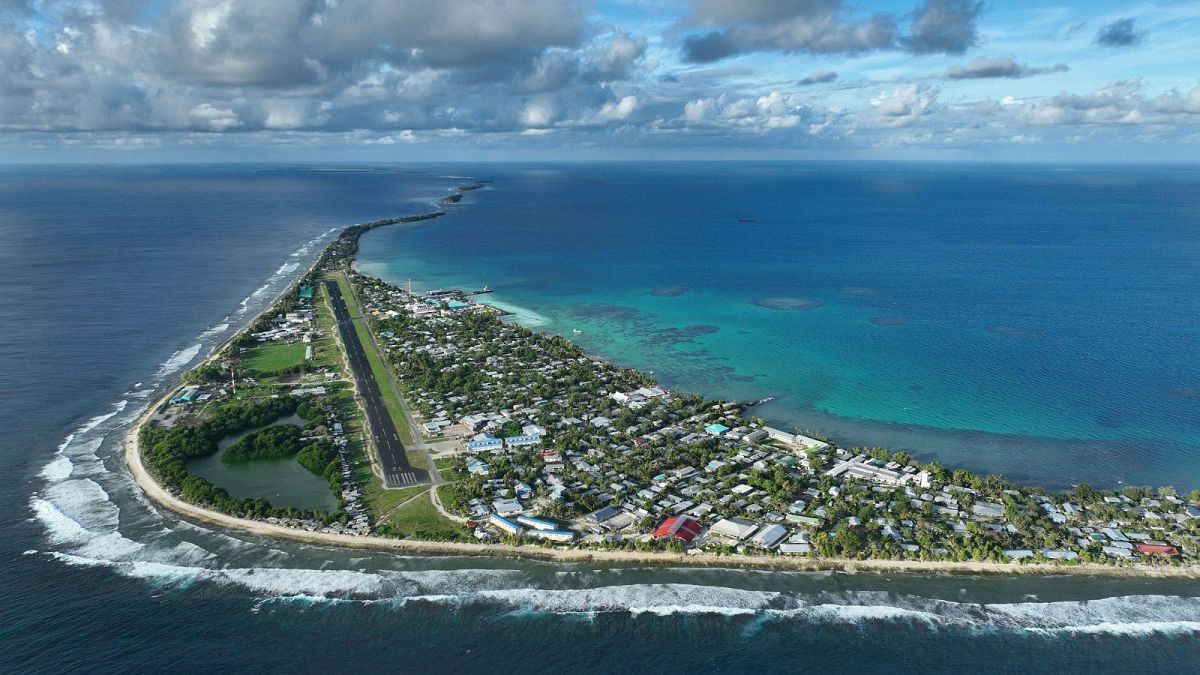

In our interconnected world, the stories of climate change and migration are increasingly intertwined, weaving a complex narrative that requires careful reflection and action. Recent developments in Tuvalu and Crete highlight the urgency and multifaceted nature of these global challenges, prompting nations and communities to explore paths of solidarity and innovation.
The Pacific island nation of Tuvalu brings to light a poignant example of climate mobility, an emerging aspect of international migration driven by environmental factors. As rising sea levels threaten its very existence, Tuvalu has forged a groundbreaking agreement with Australia, providing a pathway for its citizens to seek new horizons. This treaty represents both a beacon of hope and a sobering reminder of the realities faced by small island nations on the frontlines of climate change. The agreement aims to empower thousands of Tuvaluans with the opportunity for relocation within Australia, a gesture of goodwill and acknowledgment of shared responsibility for the global climate crisis. However, while the treaty’s existence is a step forward, it underscores a “deeply saddening” predicament—where entire communities may eventually relocate due to irreversible environmental transformations.
Meanwhile, in the Mediterranean region, another migration story unfolds. The Greek island of Crete has been facing a significant influx of migrants arriving from Libya, with numbers surpassing 7,300 this year. This surge has placed unprecedented pressure on local resources and infrastructure, as existing shelters struggle to accommodate the increasing arrivals. In response, the Greek government has deployed naval forces to patrol the southern shores of Crete, aiming to manage the flow and ensure safety for both the migrants and local communities. This scenario exemplifies the immediate challenges of migration, where countries strive to balance humanitarian needs with domestic capacities.
Both these narratives reflect the broader global dynamics, where migration, climate change, and international cooperation intersect. Tuvalu’s proactive engagement with Australia could serve as a model for future agreements, encouraging nations to adopt frameworks that address climate-induced migration with empathy and foresight. It is crucial for the international community to bolster support for vulnerable regions, facilitating not just migration pathways, but also resilient strategies that enable communities to adapt to changing environments.
In contrast, Greece’s situation highlights the importance of effective logistical responses to sudden migration waves. It also echoes the call for comprehensive European solutions that share responsibilities more equitably among member states, ensuring that frontline regions like Crete are not overwhelmed.
As we ponder these distinct yet connected stories, it becomes clear that the journey toward sustainable solutions lies in solidarity, innovation, and adaptability. Each narrative, whether it’s a treaty promising a new beginning or naval deployments safeguarding coasts, is a testament to human resilience and our collective responsibility for the future. By embracing these challenges with compassion and collaborative spirit, humanity can navigate the complexities of this era with hope and determination.
Source: {link}
